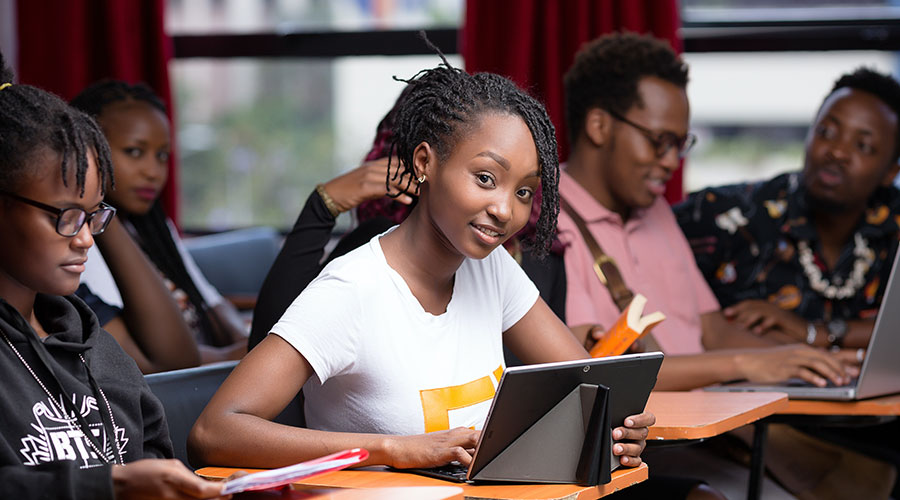Cheyney University of Pennsylvania, the first Historically Black College and University (HBCU) in the U.S., opened its doors nearly 200 years ago. In the time since, more than 100 HBCUs have been established.
HBCUs are critical platforms for the education and success of Black students and people from other underserved communities. While interest in HBCUs continues to increase as they see record application and enrollment numbers many students still face challenges due to systemic inequities.
One of the biggest issues that HBCUs face is the fact that 82% of them are located in broadband deserts, or places with little to no broadband internet., This lack of access to a reliable internet connection at HBCUs was a topic of discussion at the recent National Historically Black Colleges and Universities Week Conference.
The National HBCU Week Conference and Robert F. Smith
Each year, the professionals, experts and students from the HBCU community gather together for the National Historically Black Colleges and Universities Week Conference. The conference is a part of the White House Initiative on Advancing Educational Equity, Excellence, and Economic Opportunity. During a series of back-to-back activities and discussions, the community discusses best practices and how to combat issues.
One of the most notable activities the HBCU event hosted was a fireside chat with Founder, Chairman, and CEO of Vista Equity Partners (Vista) Robert F. Smith, along with Cisco VP of Legal and Deputy General Counsel Saidah Grayson Dill and Delaware State University President and Chair of the President’s Board of Advisors on HBCUs, Dr. Tony Allen.
During the discussion, Smith stated his concerns that almost 65% of a Black families’ wealth is spent on paying off student loan debt. He also shared that this fact encouraged him to seek out ways to help Black students for years to come and to provide more resources for HBCU students.
“What we need to do is enable those HBCUs more effectively through bringing more resources, most important of which today is broadband. [We’re] still where 82 percent of HBCUs live are in broadband deserts,” Smith said.
He went on to express: “That cannot stand. That is something that we need to make sure that our HBCUs and our community demand of not only the federal government but other companies that can enable all of our students to have access to broadband immediately, not five years from now.”
Smith’s Efforts to Close the Digital Divide at HBCUs
Education reform and bridging racial disparities are key pillars of Smith’s philanthropy. He believes that providing underserved communities with a high-quality, affordable education is a critical step in fixing deeply rooted economic inequalities. A big part of achieving that is providing those that have been traditionally disadvantaged with reliable internet access.
To help provide more resources to underserved students, Smith helped to envision and create Student Freedom Initiative (SFI), a nonprofit organization that was established to help students attending HBCUs and other Minority Serving Institutions (MSIs). The Initiative was inspired by Smith’s well-known promise to pay for the student loan debt of the 2019 Morehouse graduating class.
Under Smith’s leadership as the Chairman of the Initiative, Cisco donated $150 million to advance the technology infrastructure and cybersecurity systems at HBCUs across the U.S. in 2021. Most recently, the organization has partnered with Connect Humanity, Claflin University, South Carolina State University and the Orangeburg Department of Public Utilities to bridge the digital divide for HBCU students.
This partnership is just one of many projects the Initiative is working on to help create long-lasting change for HBCU students and the communities they serve.
You can learn more about Smith’s philanthropic efforts by reading about the steps he’s taking to help close the digital divide on a global scale and how he’s helping to end the student debt crisis.
